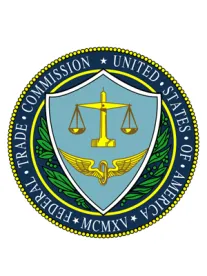Amongst other things, the FTC’s Mail, Internet, or Telephone Order Merchandise Rule (the “Rule”) requires that when you advertise non-exempt merchandise, you must possess a reasonable basis for any timing-related shipping representations. The Rule applies to merchandise sold to consumers online, by mail or by phone.
Delays may trigger obligations to notify purchasers, and sometimes even cancel and refund orders. If no shipping date is provided, you must possess a reasonable basis for believing that you can ship within thirty (30) days.
In the event that you cannot ship by the date promised or within 30 days, you must notify the customer and provide a cancellation option that includes a full refund.
In the event that you know when the merchandise will be shipped, the first delay notice must set forth a new shipping date and that the customer cancel (at your expense) and obtain a full refund. If your first delay option notice provides a definite revised shipping date of 30 days or less, you must also inform customers that their non-response will be treated as a consent to the delay.
If you are not able to provide a new shipping date, the initial delay notice must set forth the reason for the delay and a statement that, if the customer agrees to the indefinite delay, the customer may cancel the order any time until you ship the merchandise.
In the event that you are unable to ship by the date included in the initial delay notice, you are required to send a new delay notice prior to that date. The Rule sets forth what this second notice must contain, and mandates that a customer expressly consent to further delay.
In some circumstances, you may be able to just cancel the order and send a refund, as long as the customer is provided notice and the refund is provided within the time frame designated by the Rule.
Violations of the FTC’s Mail Order Rule can include up to $43,280 per violation, as well as consumer restitution. Companies should consult with an experienced FTC defense lawyer about issues such as required notices and refunds.
Enforcement of the Rule is far from theoretical.
Consider that in April 2020, the FTC announced that an online fashion retailer will pay $9.3 million for consumer refunds to settle charges that it violated rules on shipping and refunds. According to the FTC, the company failed to properly notify consumers and give them the opportunity to cancel their orders when it failed to ship merchandise in a timely manner, and that it used gift cards to compensate consumers for unshipped merchandise instead of providing refunds.
“The same rules that we have enforced for nearly 50 years against catalogers and other mail-order companies also apply to online sellers,” said FTC lawyer Andrew Smith, Director of the FTC’s Bureau of Consumer Protection. “Online retailers need to know that our Mail Order Rule requires them to notify customers in the event of shipping delays and offer the right to cancel with a full refund—not just a gift card or a store credit.”
According to the complaint, the company violated the Rule in two ways.
First, the company allegedly made clear promises to consumers for years that they offer fast shipping of their products. This purportedly includes using phrases like “Fast Shipping,” “2-Day Shipping,” and “Expect Your Items Quick!”
The FTC alleges, however, that the company regularly failed to meet its shipping promises to consumers, and failed to meet the Mail Order Rule’s requirement that consumers be notified of shipping delays and given the chance to cancel orders and receive prompt refunds.
The complaint also alleges that the company at times failed to refund consumers for the items that it did not ship. Instead, the FTC alleges, it was the company’s policy to issue gift cards, which are not considered refunds under the Rule. The company also purportedly failed to cancel orders and provide refunds when it did not offer consumers delay option notices.
Of the $9.3 million to be used to refund consumers, $7.04 million will be sent to the FTC for use in refunding consumers and $2.26 million must be refunded directly by the company to consumers. Consumers who received gift cards instead of refunds when the company violated the Rule will be eligible for refunds under the settlement.
The proposed settlement also prohibits the company from further violating of the Rule, and requires the company to ship ordered merchandise within one day of receipt of an order when the company does not specify a shipping date.
This matter should be of particular interest to eCommerce retailers who should work closely with an FTC defense lawyer in order to ensure compliance with nuances of the Rule during the current supply chain disruption environment.




 />i
/>i
